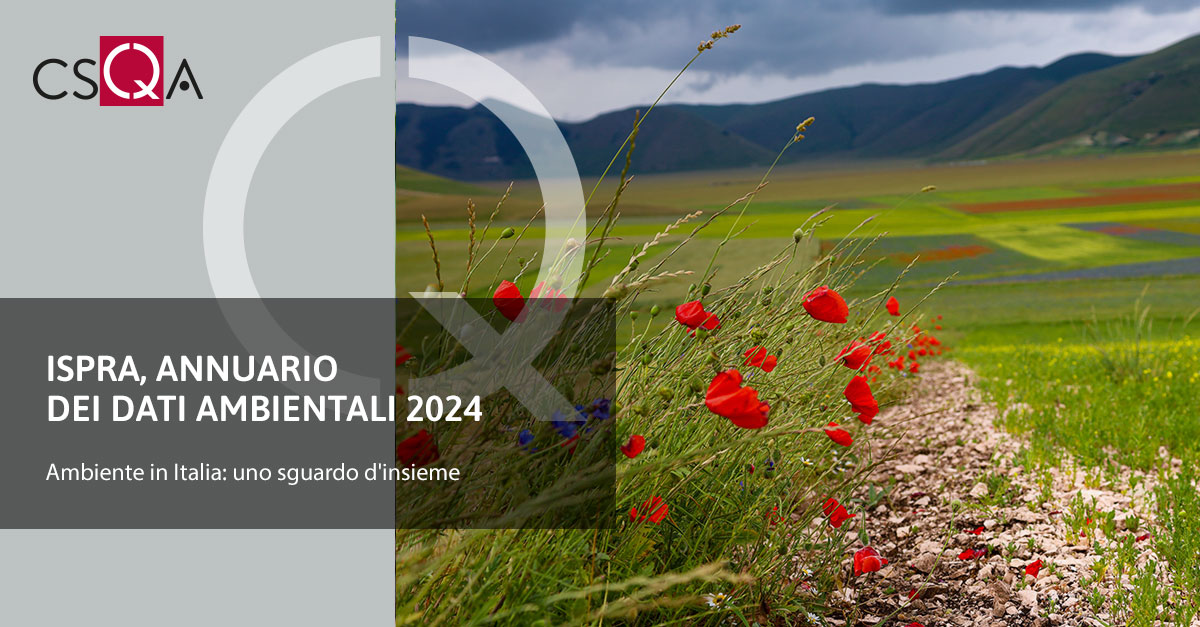 Environment in Italy: an overview , Environmental Data Yearbook 2024 is a statistical report of great scientific relevance, produced by the Higher Institute for Environmental Protection and Research (ISPRA) in collaboration with the regional and autonomous provincial environmental protection agencies within the National System for Environmental Protection (SNPA).
Environment in Italy: an overview , Environmental Data Yearbook 2024 is a statistical report of great scientific relevance, produced by the Higher Institute for Environmental Protection and Research (ISPRA) in collaboration with the regional and autonomous provincial environmental protection agencies within the National System for Environmental Protection (SNPA).Through the over 300 indicators present in the ISPRA Environmental Indicators Database , the document provides official information on the state of the environment in our country to a broad audience that includes politicians, administrators, technicians and citizens.
It therefore allows to increase knowledge of the main phenomena and their interrelations; to evaluate the effectiveness of the protection strategies in place in accordance with the established regulatory objectives and with the main national, European and international programs; to strengthen the response capacity of the institutions.
The environmental themes covered are 39 : Agriculture, Forestry, Fisheries, Aquaculture, Energy, Transport, Tourism, Industry, Air quality, Climate, Emissions, Protected areas, Biodiversity: status and threats, Forest heritage, Inland waters, Coastal and transitional marine waters and physical state of the sea, Venice Lagoon, Coasts, Water resources and balance, Soil, Land use and consumption, Georesources, Contaminated sites, Volcanic hazard, Seismic hazard, Landslide hazard, Subsidence and sinkhole hazard, Flood hazard, Waste, Economy and environment, Electromagnetic fields (EMF), Noise, Chemical substances or agents, Environmental assessments, Offshore infrastructure for the production and distribution of natural gas, Environmental authorizations, Environmental certification, Environmental information, Environmental training.
The indicators are structured in cards containing both descriptive information (metadata) such as, for example, the objectives to be achieved, the status evaluation, the trend, and analytical information (data) represented with graphs, tables and maps.
It is possible to consult the indicators with different aggregation methods ( Aggregation Catalogue ) , aimed at satisfying the information needs coming from national/European/international contexts: from the priority frameworks to the main inter-thematic core sets currently in place for the monitoring of environmental policies. (Source: https://www.isprambiente.gov.it/ )